Should you use pesticides as the garden pest control means?
Making sure that the bugs and other pests don’t penetrate into your vegetable or/and fruit garden and destroy the plants, eat the fruits and vegetables and ruin the soil is an important part of garden maintenance. Keeping your plants healthy won’t be possible without eliminating the pests and there damaging influence. But often pest control turns into a real battle for the gardeners, especially for those, who’re trying to stick to the organic gardening. Thus, they can’t use most or almost all chemical pesticides which are quite good at killing various pests that may attack different plants or trees throughout the season, but aren’t necessarily healthy for humans to consume in fruits and vegetables.
If you’re not sure why people try to stop the practice of using pesticides in their gardens, there’re a couple significant reasons they’re standing by. First of all, almost any pesticide (except the rare natural ones) is a toxic mixture that’s designed to kill those little living creatures or make them harm. When people consume pesticides together with the products from their gardens or the ones they buy at the store, they might get a certain ‘dose’ of that negative influence. It won’t be as disastrous as for the insects, but if they are consumed on a regular basis or when the gardeners misuse those substances and end up consuming ‘higher doses’, the pesticide’s harmful influence on human’s organism becomes more noticeable. Some of the more common, less health-threatening, but still undesirable consequences of the pesticide’s use and ‘consumption’ might be skin, eye, nose and throat irritation, headaches and upset stomach problems. But in fact, it might lead to some liver, kidney, central nervous system illnesses. There were even death records.
Besides, pesticides stay in the soil for a long time. And, people may even inhale them with the air. Some types are dangerous for ‘good’ insects like bees.
That’s why people need to be more careful and experimental when it comes to regulating the pests’ presence in the garden and making them disappear from it even if they manage to seep into it. And, if they plan to use the pest controlling services, they need to make sure that the available treatment doesn’t include pesticide’s application and is effective enough to pay for them.
Check out pest control services
Sometimes you really need to use those services (like before the season to treat the soil or in the middle of the season to prevent the pests from destroying the vegetables).The problem might get worse if you get a neighbor gardener, who uses the chemicals to kill the pests in his own garden or make them migrate from it. At least as I’ve experienced, the pests tend to escape the poisonous plants and find the yummy ones that are growing in an organic garden. So, you may find local pest control providers on HireRush.com, call the professionals directly from the site and instantly get rid of the parasites. However, you’ll still have to take care of your garden and keep it free from pests on your own.
You may try to prevent the pests’ invasion by implementing certain gardening techniques like growing things under the cover and purchasing pest-resistant plant species. Trapping the pests and keeping other ‘good’ insects or animals that kill the parasites might be effective too. So, if you’re willing to learn more about natural garden pest control and start healthy vegetables’ growing, consider using the tips below and begin a new page in the gardening practice of yours.
Post your pest control task here
Organic garden pest control tips
- One of the best ways to repel an attack of pests is to ‘invite’ beneficial insects to your garden. A lot of them will be attracted to the plants of the umbel family you may plant around the garden. For example, small wasps that live on preying upon the pest caterpillars will gratefully land on the flat-topped inflorescences offered by those plants. And, they definitely won’t sit on them while their favorite food is sitting quietly all over the garden.
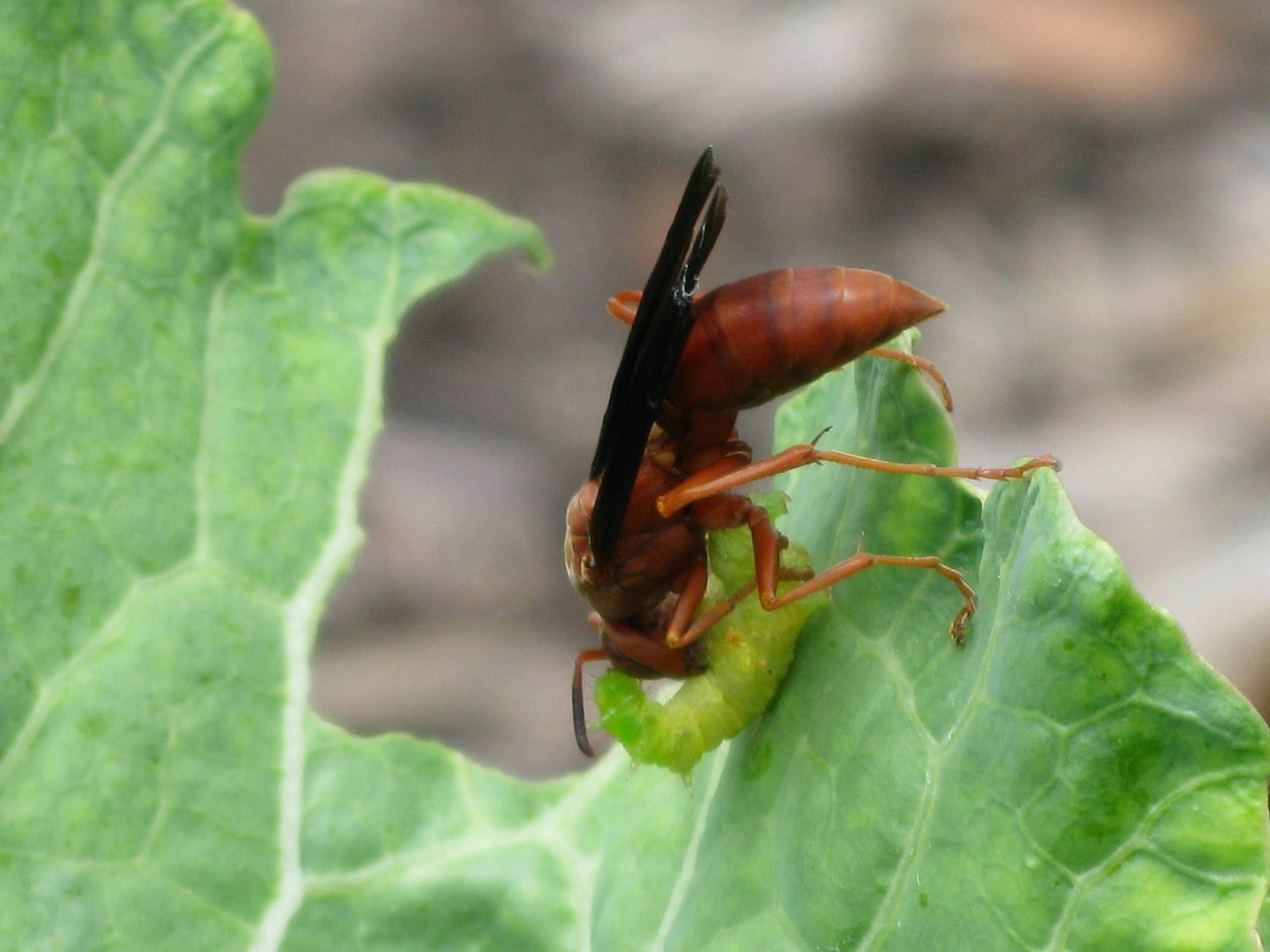
- One of the most efficient proactive pest control and prevention methods, used to guard your vegetables and other crops from pests involves growing them under the protective fabric or garden mesh cover. Gardeners recommend setting up special floating row covers over the vegetables to keep small animals (like birds and squirrels) and harmful insects (like aphids, moths or caterpillars) away from the plants. The protective layer won’t let the pests harm the plants and eat up their fruit.
- Many plants give off natural odors or have volatile oils which some bugs find unpleasant. Often these odors or oils are a warning to bugs that the plant contains its own built in insecticide. Concoctions made from these plants will deter pests. For instance, Marigolds can greatly reduce the damage caused by root-ravaging nematodes—those tiny soil-dwelling wormlike pests—but only if you use them correctly. For the best effect, grow a thick stand of marigolds as a cover crop for a season. Then, turn them under the soil. Next year, plant whatever you like in that area—nematdoes won’t be around to cause trouble underground.
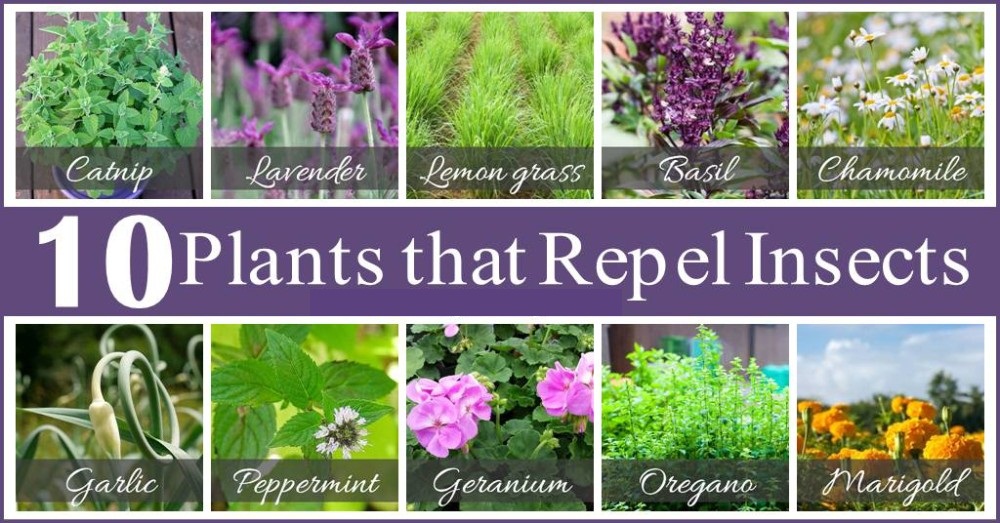
- You can decoy flea beetles with the help of arugula. It’s a spicy salad green. Pesky flea beetles insatiable parasites of eggplants and potatoes—will be attracted to the arugula first. So, you’ll be able to use a hand vacuum to suck the beetles off the trap plants before they eat them up and proceed to devouring your main crops. You may have to repeat treating the salad with the vacuum cleaner a few times each season to keep ahead of the invading flea beetle army.
- Confuse and deter the pests with a mix of sights and scents. You can do that by increasing the biodiversity of your garden and switching from the monocultural way of planting the crops to mixing the plants from different families. Don’t plant long rows or large patches of tomatoes or onions. Plant two or three medium rows of onions alongside a couple of broccoli rows. Place tomatoes close to basil and peas – closer to carrots. It will be even better if you manage to combine edible species with ornamentals (like flowers with strong and repellent smell).
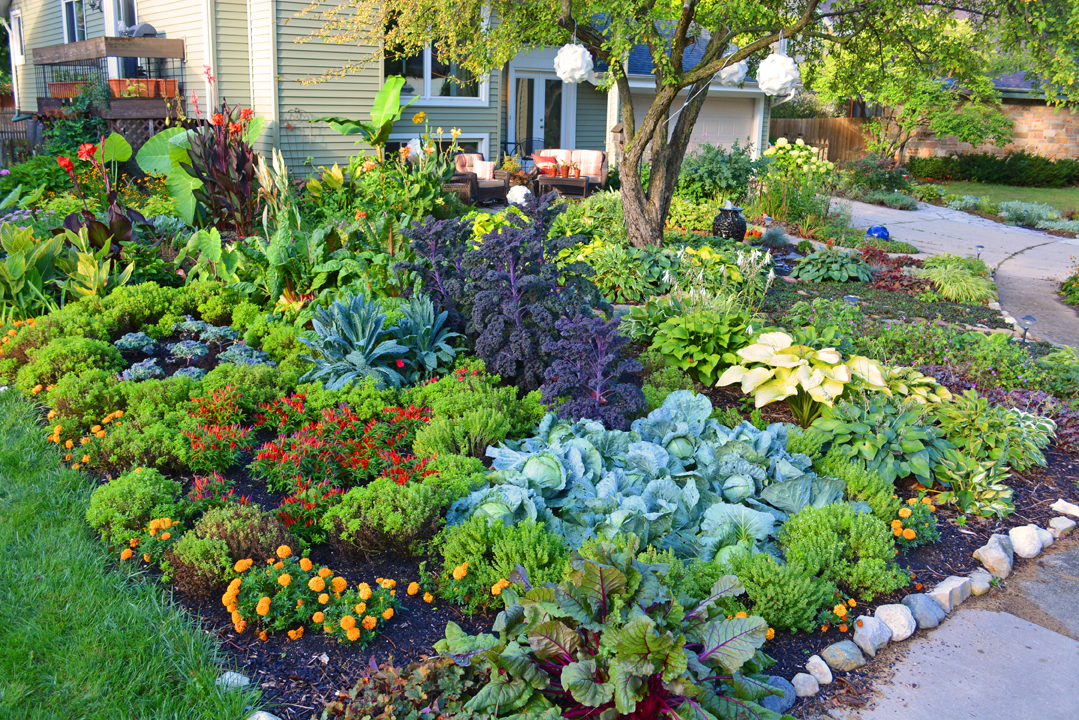
- Such parasites as arwigs, sow bugs, pill bugs, slugs, and snails have one thing in common. Those pests like to hide out in damp, shady spots during the hot day. The only right thing is to take advantage of this habit, tempt them with attractive trap nests or strips we’re going to talk about in tip 9, gather as much of them as you can. For instance, you may leave those tarps overnight. Then, come back to your garden early in the morning to get the lures and put them into the soapy water to kill the deceived pests.
- Make an organic DIY all-purpose insect-killing or deterrent sprayto keep the invasive insects away from your fruits and vegetables. Most non-toxic solutions include spicy ingredients, which work against the pests. Those may be garlic oil and hot pepper. You may also add some natural dish soap, glycerin, and a couple of drops of essential oils to it. Natural vegetable based soaps or detergents are added to sprays in small amounts to make them stick to plants. Many insects dislike and are harmed by soap too.

- Handpicking was highly rated as a slug control measure (87 percent success rate). Relying on bigger predators (like chickens, garter snakes or especially ducks) turns out to be the most dependable way to achieve long-term ‘maintenance’ of garden slugs. Those animals might help you against several kinds of beetles, cutworms and many other pests too. Ducks are reportedly sharp slug-spotters, whether you let them work over the garden in spring and fall, or enlist a pair to serve as your personal garden pest controlling assistants throughout the season.
- Sticky traps may be a great mean in your war with the pests. They’re used in pest control to catch certain insect species by attracting them with special, usually bright or brown colors. Once they’re stuck to the strip, they won’t be able to move anywhere. And you’ll be able to kill them all. You may purchase such traps at the garden centers and supply stores. You may also make DIY traps by applying any sticky adhesive agent (including tape or wrapping plastic) on top of the strip of paper or piece of wood.

- You may also keep your organic garden free from the annoying invaders by releasing ladybugs into it. Those pretty creatures are in fact relentless killers. They have an appetence for many kinds of insects. That’s why they’re able to serve as a natural and quite beautiful pesticide which is not connected to the harmful chemicals at all. As gardeners report, one single ladybug may consume around 5,000 aphids throughout its life, along with other kinds of mites and bugs it may eat up. Why would you even need pesticides then?
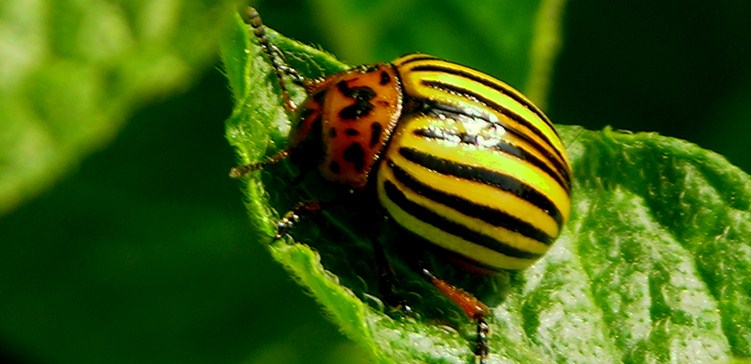


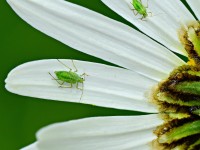


Inviting beneficial insects is a smart idea. That way you can hopefully keep out the annoying pests. It can be hard trying to keep pests from eating your garden, but bringing in insects that will deter the others is a great idea!
Your tip about confusing and deterring pests by mixing sight and scents is helpful to me because my garden sometimes struggles with keeping the pests at bay. My husband and I have been trying to figure out some ways to keep the pests away from the vegetables in our garden. I will be sharing these tips with him so that we can keep the vegetables we do plant away from pest infestations.
Its a very informational article, thanks we liked it.
Thanks a lot! Hope you’ll find our blog helpful)
My wife noticed a lot of bugs in the garden eating our vegetables and we don’t know what to do. We might have to try getting a chicken like you mention to help eat some of them. If worse comes to worse, we’ll see what local businesses can help us. Thanks for sharing!
I should have read this article before planting our garden. I had no idea that there were so many plants that actually repel insects naturally. We had so many problems this year and next year I’ll for sure follow your suggestions!
I’m looking to have my own garden in my backyard. This gave me some useful things to be mindful about. I just hope it doesn’t cause any problems for my neighbor who definitely doesn’t any means of pest control.
This is some really good information about pest control. I liked that you pointed out that it would be smart to tray some sticky traps. I would have never thought about trying something like that to get rid of unwanted bugs in my garden.
Thank you!
Hi,
Thanks for sharing this informative post with us on pest control. Your tips are very effective for pest I like your tips.
Great Job